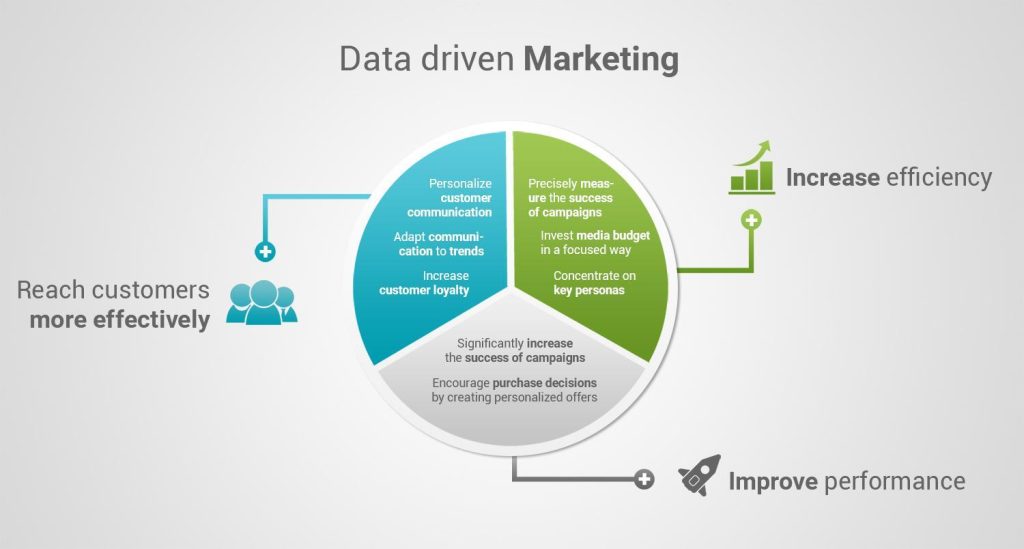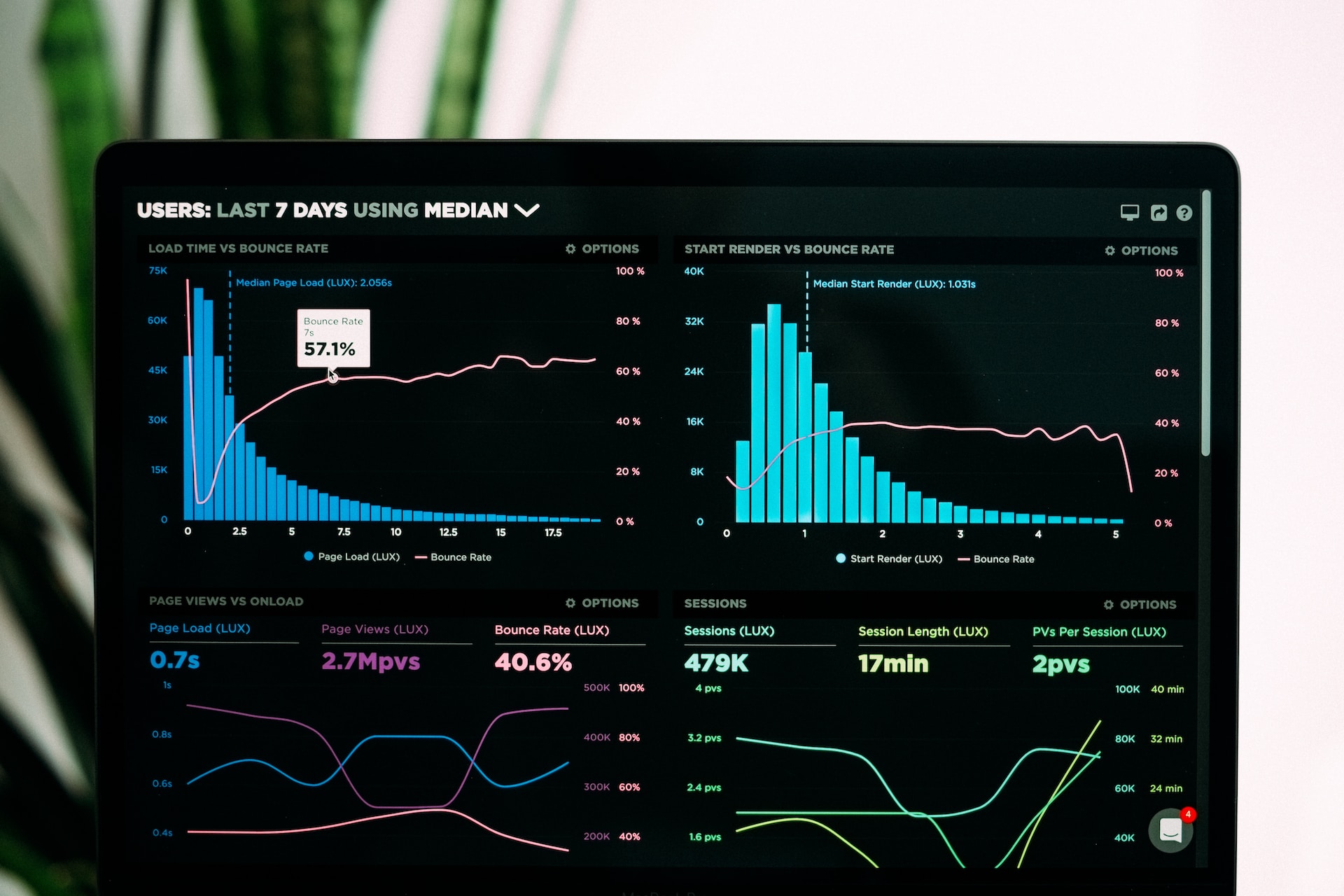The Importance of Data-Driven Content Marketing in 2023
Data is everything in the corporate world of today. Businesses can use analytics to monitor client behavior and preferences, spot trends, and recommend data-driven marketing solutions as necessary.
Quick Links
Companies run the risk of making decisions based on inaccurate or dated information if they don’t grasp data-driven marketing.
For marketers who want to remain ahead of the competition and make sure their campaigns are as successful as possible, data-driven marketing is essential.
Businesses can use analytics to make wise choices based on the wants and needs of their customers, leading to more effective marketing campaigns. Let us explore the importance of data-driven content marketing in 2023:
What is Data-Driven Marketing?
When it comes to improving marketing tactics, data-driven content marketing is the way to go.
Information is gathered from a specific group of people who fit the description of the company’s ideal customer or client. Effective content marketing strategies can then be developed with the help of the collected data.
You can either use a broad, shotgun approach, or you can use data to develop a targeted strategy.
When comparing content marketing strategies, one that is data-driven will always outperform a more scattershot approach.
This is because, unlike traditional content marketing methods, data-driven content marketing uses actual information gleaned from the actions and reactions of actual customers.
Organizations can improve the efficiency of a marketing channel with the assistance of data-driven insights into content marketing strategies.
Overview of the Importance of Data-Driven Content Marketing in 2023
Marketers can reap many rewards from an emphasis on data. Through this, your team can better understand the priorities of potential clients and employ that knowledge to win them over.
You will also have access to all the context you need to evaluate the success or failure of your efforts. The use of data-driven marketing eliminates guesswork and enables you to make educated choices about the strategies you deploy.
In addition to helping you sell more of your product, data-driven marketing can also help you make your brand’s communications feel more genuine. Customers are more likely to react favorably to personalized messaging than boilerplate ad copy.
Benefits of Data-Driven Content Marketing

1. Improved Targeting
A marketer’s ideal client is one who not only converts into a buyer but also becomes a devoted patron and enthusiastic promoter of the business among their social circles.
Internet and brick-and-mortar retailers alike have access to a wealth of information that can be used to learn intimate details about each customer.
User demographics, browsing patterns, and website engagement are just some metrics that can be gleaned from using tracking tools for online marketing. You can find your “perfect” clientele with the aid of data.
2. Increased Engagement
Data-driven marketing lets marketers put consumers first and engage them in ways they like. Data-driven marketing optimizes benefits for marketers and eliminates annoying, irrelevant messages that disrupt consumer journeys.
Data-driven marketing strategies to enhance and personalize customer engagement include:
Bring your data and organization together to build seamless customer journeys across networks and touchpoints. Unify brand messaging across functions, not just marketing efforts, to deliver contextual customer experiences.
Create more detailed buyer personas using browsing history, past sales, content performance, engagement, etc. This lets you reconnect and remind your audience about the brand at the right times and places to drive action.
For instance, you can target social media ads to recent website visitors or send abandoned cart emails to current customers to encourage them to buy.
Historical data analytics can help you determine the best time for promos. This can optimize promotional program duration and timing.
3. Enhanced Customer Experience
While estimates for the number of advertising texts an individual is exposed to daily can be all over the map, it’s safe to say that it’s in the hundreds, if not thousands.
Add to that the countless hours spent consuming online material through texting, social media, video streaming, podcast listening, and general web browsing.
Marketers try to cut through the clutter by employing strategies like ‘personalization’ and ‘right message, right time, right place.’ However, when customers receive a clear message, they may consider, ‘Finally, there are people who understand what I want!’
Amazon’s and Netflix’s use of recommendation engines to propose goods and content, respectively, are the best examples of this type of technology in use today.
4. Better Return on Investment (ROI)
To improve the customer experience, data-driven marketing mainly uses detailed consumer profiles.
Because nearly half of the customers say they left a website to purchase a product somewhere else after having a negative experience, this is the key to the successful growth of a company.
Marketers prioritizing consistent content creation are 13 times more likely to see positive ROI.
Enhancing personalization through data-driven marketing results in a positive customer experience and increases consumer confidence in brands. Return on investment (ROI) can also be increased by personalizing the client experience.
III. How to Implement Data-Driven Content Marketing in 2023
1. Define Your Goals and Objectives
Before collecting data, you need to know your end goal(s). Like many businesses that use data-driven marketing, you must decide what you hope to accomplish with the information.
Why? Because your goals will determine your actions from here on out. You’ll have a sense of what data to gather. Find out where to obtain it. In addition to what sort of information to seek.
What you want to accomplish with your software will determine this. Person-specific user accounts require an emphasis on data collection from end users. Focus on attribution data if you want to trace the customer’s journey and where they came from before making a buy.
After you’ve settled on an objective, it’s time to set up the key performance indicators (KPIs) that will enable you to gauge your progress toward that end.
2. Identify Your Target Audience
The primary advantage of knowing your audience is that you can effectively tailor your message to them.
Marketers can learn intimate details about their demographic with the help of data-driven marketing decisions.
With the help of CRM (customer relationship management) insights, a marketer can better understand consumer behavior by analyzing customers’ past data and employing this knowledge to fortify and strengthen relationships with existing clients.
Traditional marketing relies on assumptions about consumers based on previous trends rather than current demographic data.
Semrush’s Market Explorer is a great resource for understanding your target group better.
3. Create a Content Marketing Strategy

Search engine traffic and social media interaction are two major benefits of content marketing. These, in turn, can lead to more useful actions by your audience.
An effective content marketing effort begins with careful planning. Clearly defining these factors early on will help you stay on track and complete your job successfully. It ensures that your campaign’s components remain in sync and laid out.
The ‘click funnel’ is a useful tool for guiding your content marketing strategy. You can better meet the requirements of your target audience by aligning your content with crucial parts of the customer’s journey.
4. Measure and Analyze the Results
If you want an accurate evaluation of the outcomes, you need to check your dashboards consistently. Monitor your conversion rates and return on investment (ROI) if increasing your profitability is one of your goals.
Tracking brand mentions, discussions, and impressions on social media can help you increase brand recognition, which should be one of your goals.
iV. Best Practices for Data-Driven Content Marketing in 2023

1. Use Data to Create Relevant and Valuable Content
Have you ever bought something and then found advertisements for it all over the internet? Customers are irritated by this bad experience, and precious advertising dollars are well-spent.
You should gather your customer information in a single, centralized place, such as a CRM, to prevent this error and ensure your consumer targeting is as precise as possible.
You can identify them as they progress through the funnel based on each touchpoint they interact with.
You can target more accurately and prevent serving irrelevant ads by having a full picture of every customer.
2. Utilize A/B Testing to Optimize Your Content
Intuition is needed to produce quality material. You want content that is accurate, useful and satisfies user requirements. A/B testing is one method to find out if your content is successful.
A/B testing, also called split testing, gives actual users a sneak peek at your material in a way that yields insightful feedback. By avoiding haphazard content publication and generic, one-size-fits-all solutions, you can better serve your users while saving time.
To ensure that the assessment is successful, you must do it correctly.
Your website should have valuable content on every page for users. However, only some pages are made similarly in terms of ROI.
3. Continuously Measure and Analyze Your Results
The data-driven strategy calls for in-depth monitoring of progress at frequent intervals. Only by monitoring customer actions can you create an effective plan for your business.
After you’ve analyzed the initial data, you should keep testing to find the optimal marketing strategy.
Boost your Business with Data-Driven Content Marketing
In today’s global economy, data is king. With the help of analytics, companies can monitor consumer actions and preferences, spot patterns, and implement data-driven marketing strategies.
Marketers who want to remain ahead of the competition and ensure their campaigns are as successful as possible must embrace data-driven marketing.
Why WooCommerce is the Best Choice for Your Online Store?
WooCommerce stands out as a top option for anyone looking to build an online store. This platform…
0 Comments8 Minutes
How to Use AI-Powered SEO Tools for WordPress eCommerce
SEO is a critical factor in the success of any e-commerce WordPress store. As competition…
0 Comments11 Minutes
Why Short-Form Videos Are the Future of Content Marketing
Your Instagram customers spend over 50% of their time watching short-form videos and reels. Rather…
0 Comments12 Minutes
The Role of Digital Marketing in Business Growth
Online marketing touches every aspect of a business, whether it is initiating the idea or for an…
0 Comments3 Minutes
AI Meets Authenticity: Balancing Automation and Human Touch in Content Marketing
Is your brand starting to sound like a robot? In a world where algorithms write faster than any…
0 Comments8 Minutes
Essential Tools for Enhancing Web Design and UX Hosting
Have you ever visited a website that felt slow, clunky, or confusing? A website that is poorly…
0 Comments11 Minutes
How a Mini Cart Transformed My Store’s Shopping Experience
Okay, real talk—running an online store is hard. You think you’ve got everything figured out, you…
0 Comments9 Minutes
Balancing Your Security Initiatives With Industry Compliance Requirements
Managing a business today comes with a number of daily battles that need to be fought. Resources…
0 Comments11 Minutes








